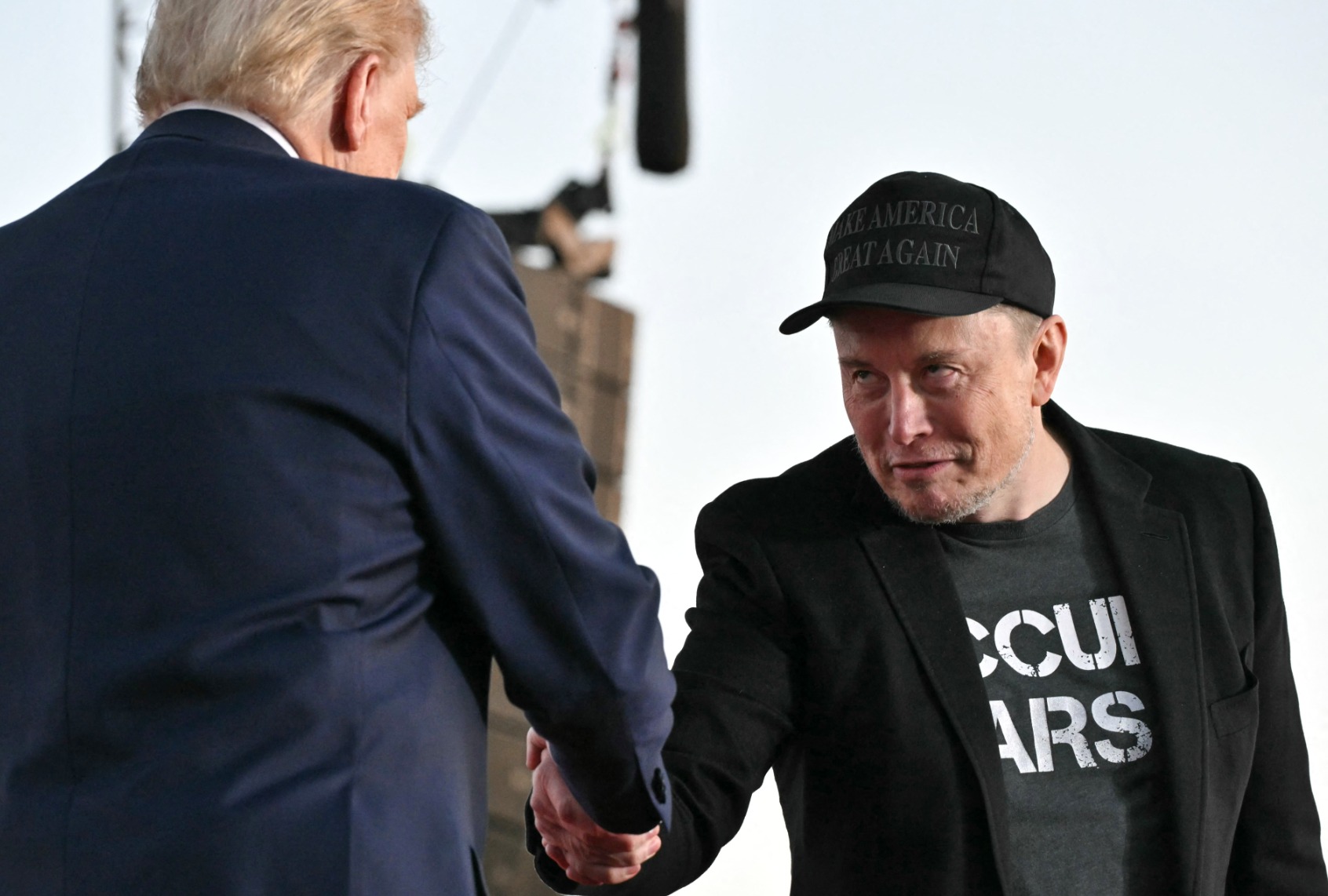The get-out-the-vote campaign backing former President Donald Trump is pushing the limits of new regulations passed by the Federal Elections Commission related to how his campaign is allowed to coordinate with outside groups.
The Trump campaign has been leaning heavily on outside groups like Turning Point Action and billionaire Elon Musk’s America PAC to organize its ground game and get-out-the-vote operation. The big advantage for outside groups is that they are not subject to the same campaign finance regulations as an actual campaign.
For example, Turning Point Action claims to be running the ground game for Trump in Arizona and recently combined operations with the America PAC to run voter turnout in Wisconsin, but has not disclosed any of its finances since 2022. The group also says it has staff working in Michigan, Nevada, Georgia and Pennsylvania.
Likewise, Musk’s America PAC has raised $87 million recently, with $75 million of that coming directly from Musk himself. This far exceeds the standard $3,300 contribution limit for individuals giving to a candidate's campaign.
In past elections, PACs have been forbidden from coordinating with campaigns. As the Supreme Court reasoned in Citizens United v. Federal Election Commission, keeping a campaign from coordinating with outside groups like PACs played a role in preventing corruption or the appearance of corruption.
While the prohibition on coordination was imperfectly enforced in the past, in March the FEC issued an opinion allowing for outside groups to coordinate with campaigns on canvassing, opening the door to the tight collaboration between campaigns and groups like Turning Point and the America PAC.
For example, in May, Luke Malace, a field manager at Turning Point, said in an address to the Monrow County GOP in Michigan that when Trump says the election is “too big to rig” it’s because “we now are officially a arm of the Trump campaign, Turning Point Action is, for the get out the vote, chase the vote efforts.”
At an August event, Malace reiterated his characterization, saying “now we're an official arm of the ballot chasing.”
“They're kind of just doing their own thing, kind of, and we're doing our thing, but we are in coordination with each other, so we share data and everything, so we know what we're they're to, they know what we're up to,” Malace sad a the August Super Chase event at Kent County
Tyler Boyer, who serves as the chief operating officer of Turning Point Action, described a major data-sharing operation between the Trump campaign and Turning Point at a September event with Meshawn Maddock, who served as a Michigan GOP co-chair and a fake elector for Trump, and Shane Trejo, a GOP operative infamous for calling white supremacists at Charlottesville “civil rights heroes.”
“How often does voter data get uploaded? Daily,” Bowyer said, adding “the left has totally subverted this entire process by creating organizations that collect the data and distribute it quickly. Our side has basically done little to nothing on that side, so there's only a couple of different places to aggregate all the data. So this is also a good reason to utilize what we're doing in our application and also what whatever the GOP is doing or the RNC. And by the way, we're sharing all of our data upwards with the Trump campaign.”
We need your help to stay independent
The new rules around coordination have also paved the way for those working with outside groups to have closed-door meetings with members of the campaign or even the candidate under the pretense that they’re discussing canvassing.
Lacy Nagao, the Chase the Vote Director for Turning Point Action, revealed during a session at Turning Point’s “People’s Convention” in June that Bowyer had met privately with Trump.
“So we actually, our COO, Tyler Bowyer, met with the Trump campaign just a couple weeks ago and went over everything and they are completely on board. President Trump actually tweeted out something that was kind of funny, he said, ‘Everyone go apply for a job at Turning Point Action, be a ballot chaser.’ So he is 100% on board,” Nagao said. “We got the Trump endorsement for this operation.”
Saurav Ghosh, the director of federal campaign finance reform at the Campaign Legal Center, told Salon that this sort of coordination between candidates and outside groups like Turning Point Action is exactly what the FEC opened the door to in their recent rules change and that “I don’t think any super PAC would’ve done so without this decision giving them cover.”
“They essentially created a loophole that super PACs and candidates immediately jumped on to spend millions of dollars on our election,” Ghosh said. “That’s very concerning because super PACs are a primary vehicle for special interests to exert their influence on our election.”
Want a daily wrap-up of all the news and commentary Salon has to offer? Subscribe to our morning newsletter, Crash Course.
Turning Point Action and groups like it are especially concerning to Ghosh because the group, as a 501c4 nonprofit, is not required to disclose its donors, meaning that “voters don’t even know who is financing the operation.”
“That’s pretty much the nightmare scenario when you have the wealthy, billionaires special interests, who are not only allowed to put an unlimited amount of money into an operation but also their contributions being concealed,” Ghosh said.
Ghosh went on to note that when outside organizations and campaign officials or the candidate is allowed to meet with outside groups to coordinate on canvassing, there is little that watchdogs or the FEC can do to verify that their conversations were limited to canvassing.
“It’s going to be a bipartisan practice and thus a bipartisan problem,” Ghosh said. “I think what people need to know is that when that happens and when super PACs get more access and influence the real people that are hurt are the voters.”
Turning Point Action did not immediately respond to a request for comment.
Read more
about the Trump campaign


